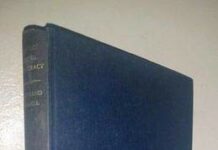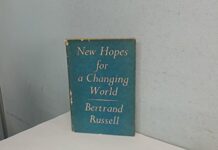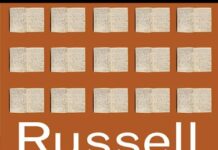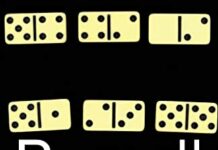
Ebook Info
- Published: 1986
- Number of pages: 355 pages
- Format: PDF
- File Size: 6.74 MB
- Authors: Bertrand Russell
Description
“I think all the great religions of the world – Buddhism, Hinduism, Christianity, Islam, and Communism – both untrue and harmful. It is evident as a matter of logic that, since they disagree, not more than one of them can be true.”Bertrand Russell wrote these words in his famous essay, “Why I Am Not A Christian.” In Bertrand Russell on God and Religion, Al Seckel presents in one volume the severe scrutiny Russell brought to bear on organized religion in his best essays. Bertrand Russell on God and Religion is an exhaustive compilation of Russell’s best essays on religion, free thought, and rationalism. Al Seckel has rescued many of the writings from obscure pamphlets, chapters buried in books, and from out-of-print periodicals. From the outset of his career, Russell struggled to uproot and expose the remnants of Puritanism’s emphasis upon guilt, sin, and moral condemnation. In “Why I Am Not A Christian,” he wrote, “Religion is based . . . primarily and mainly upon fear . . . fear of the mysterious, fear of defeat, fear of death. Fear is the parent of cruelty, and therefore, it is no wonder if cruelty and religion have gone hand in hand.” It is in this vein that Russell approached religion. The essays in this book are representative of the full range of his thinking on the subject. Some of the essays included are, “My Religious Reminiscences,” “A Debate On The Existence of God,” “What Is An Agnostic?” and “Are the World’s Troubles Due to Decay in Faith? “Bertrand Russell was the recipient of countless awards for excellence during his long lifetime (1872-1970), including the Nobel Prize for literature, which he won in 1950. The range of his critical inquiry is without parallel in contemporary Western culture.
User’s Reviews
Editorial Reviews: About the Author BERTRAND ARTHUR WILLIAM RUSSELL, a prolific writer and considered the cofounder of analytic philosophy, greatly enhanced the fields of mathematics and logic. Born to Viscount Amberley and Katherine, daughter of the 2nd Baron Stanley of Alderley, at Trelleck on May 18, 1872, Russell was orphaned by age four. Raised by his grandparents, Lord and Countess Russell, young Bertrand received a thorough education from a series of tutors, achieving a perfect knowledge of German and French. In 1890 Russell attended Cambridge University, where he studied philosophy and mathematics under such monumental figures as John McTaggart and Alfred North Whitehead. Along with the latter, Russell composed the three-volume Principia Mathematica (1910–13), a momentous work that advanced new theories in the study of logic. By introducing such ideas as type theory, Principia Mathematica paved the way for other logicians like Kurt Gödel, among others, to build their own mathematical theories. The authors planned a fourth volume on geometry but never completed the project.Analytic philosophy attempts to clarify specific philosophical problems using epistemology and logic. Incoherence and ambiguity seemed to dominate much philosophical thought, and Russell, along with G. E. Moore, fought for clarity and precision in language. Russell employed logic—which worked so well in its application to mathematics—to philosophy, greatly influencing the history ofthe subject as well as epistemology, metaphysics, and political theory.Russell divorced his first wife, Alys Smith, in 1921 and married Dora Black, with whom he had a son and daughter, Conrad and Katherine. He supported his family throughout the decade mainly by writing on topics as diverse as physics and education in terms that the general reader could understand. Along with his wife, Russell founded an experimental institution called the Beacon Hill School in 1927. Concern for general social issues dominated much of Russell’s public life. In the early 1900s, he advocated suffrage for women. During World War I, he was thrown in jail for penning a pacifist pamphlet. Before the Second World War, he favored a policy of appeasement, but, by 1941, he recognized the necessity of Adolf Hitler’s defeat in order to preserve democracy. Throughout the 1950s and 1960s, Russell protested the Korean and Vietnam conflicts as as well as the development of nuclear arms.Russell’s strong beliefs on social matters sometimes clashed with his academic life. In 1916 he was dismissed from his post at Trinity College, Cambridge University, after being jailed for writing a pacifist pamphlet. In Why I Am Not a Christian (1927), Russell described religion’s detrimental effects and later argued for agnosticism in A Free Man’s Worship (1903). Public outcry forced a court to revoke his contract with the City College of New York, deeming him morally unqualified to teach in 1940. Ironically, much of Russell’s moral outlook was, in fact, based on his paternal grandmother’s Christian influence—she admonished him to embrace Exodus 23:2, “Thou shalt not follow a multitude to do evil,” which Russell admitted shaped him throughout his life. Still, Russell remained an agnostic—like his father—who leaned toward atheism. In 1949 Russell was awarded the Order of Merit and the Nobel Prize in Literature the next year. Russell died on February 2, 1970, of influenza at the age of ninety-seven.His many works include Principles of Mathematics (1903); Principles of Social Reconstruction (1916); Roads to Freedom: Socialism, Anarchism and Syndicalism (1918); The Problem of China (1922); Power: A New Social Introduction to Its Study (1938); Authority and the Individual (1949); and Unpopular Essays (1950).
Reviews from Amazon users which were colected at the time this book was published on the website:
⭐Al Seckel’s “Bertrand Russell on God and Religion” is easily the best collection of Russell’s writings on religion, as it contains all the most important and best ones: “Why I Am Not a Christian”, “What Is An Agnostic”, “The Theologian’s Nightmare” and his memorable debate with Frederick Copleston SJ on the existence of God, in addition to a good introduction on the life and work of Russell and a complete Russellian bibliography. I also have the volume “Russell on Religion” edited by Andersson & Greenspan and it’s also a good one, but the Russell vs. Copleston debate is surprisingly missing in that one, and I think that’s a big omission. Both books share some of the most important essays, but in terms of completeness if I were to choose between both, I’ll keep this one. Nice essays such as “The Value of Free Thought” and “An Outline of Intellectual Rubbish” are also missing in the Andersson & Greenspan anthology but are included in Al Seckel’s one. Another nice essay which, perhaps due to its extension, is missing in both anthologies but should have been included is “What I Believe”. This book is a must-have in the library of any skeptic and freethinker.
⭐+++++This book consists of twenty-one essays written by Bertrand Russell (1872 to 1970) between 1912 and 1961. They were compiled and edited by Al Seckel, a member of the Bertrand Russell Society and one who has lectured extensively on Russell’s life and work. According to Seckel, “the purpose of this collection is to bring together in one…volume some of Russell’s most delightful thought-provoking essays on [organized] religion.”Some topics discussed are agnosticism, atheism, rationalism, churches, God, the soul, science, free thought, sin, and faith. He examines these and other topics with “rational skepticism” which is “withholding judgment where the evidence is not sufficient, or, even more so, when there is contrary evidence.”This collection of essays definitely captures the scope and depth of Russell’s thinking on religion. His logic and reasoning are impeccable. I now understand why he was called “the world’s most famous atheist.”The book is divided into five parts. Here are the titles of my favorite essays taken from each part:I. (6 essays)(1) Why I am not a Christian.(2) The faith of a rationalist. (No supernatural reasons are needed to make humans kind.)II. (5 essays)(1) A debate on the existence of God. (Between Russell and a Father of the church.)III. (2 essays)(1) Science and religion.IV. (6 essays)(1) An outline of intellectual rubbish.(2) The value of free thought. (How to become a truth-seeker and break the chains of mental slavery.)(3) Ideas that have harmed mankind (and womankind).(4) Ideas that have helped mankind (and womankind).V. (2 essays)(1) The theologian’s nightmare.Before the first essay begins, there is a brief biography of Bertrand Russell (later Lord Russell) by Seckel. It is very thorough as evidenced by the more than 55 footnotes at its end.Finally, the only problem I had with this book is with regard to referencing. All essays are not referenced or inadequately referenced. I know that Russell in his other works extensively referenced. Thus, I’m not sure if Seckel edited out references to save space and assumed that the reader would believe everything Russell said due to his reputation. On a subject like this, I think references should have been kept in. Also, there is a bibliography at the end of the book. But it is really just a list of books written by Russell.In conclusion, this is a fascinating collection of essays by one of most prolific and brilliant thinkers and writers of the twentieth century. Now I understand why Russell won the 1950 Nobel Prize in literature!!**** 1/2(essay collection published 1986; acknowledgements; biography of Bertrand Russell; 5 parts or 21 chapters; main narrative 300 pages; “bibliography;” name index; subject index)+++++
⭐great topic.haven’t started yet.interesting man
⭐Excellent
⭐After reading ‘Why I am not a christian’, I was excited to find that there existed an even larger collection of Mr. Russells essays. Some of the essays in this book are already in ‘Why I am not a christian’, including that particular essay. The others I had not read before were informative, well-structured, and balanced. He was truly a man ahead of his time.
⭐Bertrand Russell’s thoughts upon religion are often very interesting and exciting to read. I particularly enjoyed reading a theologian’s nightmare. However hardly any of this book is philosophy on par with Russell’s work in other subjects. Most of what appears to be valid in the book amounts to a critique of Christians. Very little of what Russell says is relevant to contemporary Christian philosophy in that his arguments are outdated. Very interesting but hardly any truth and substance against Christian thought.
Keywords
Free Download Bertrand Russell on God and Religion (Great Books in Philosophy) in PDF format
Bertrand Russell on God and Religion (Great Books in Philosophy) PDF Free Download
Download Bertrand Russell on God and Religion (Great Books in Philosophy) 1986 PDF Free
Bertrand Russell on God and Religion (Great Books in Philosophy) 1986 PDF Free Download
Download Bertrand Russell on God and Religion (Great Books in Philosophy) PDF
Free Download Ebook Bertrand Russell on God and Religion (Great Books in Philosophy)





